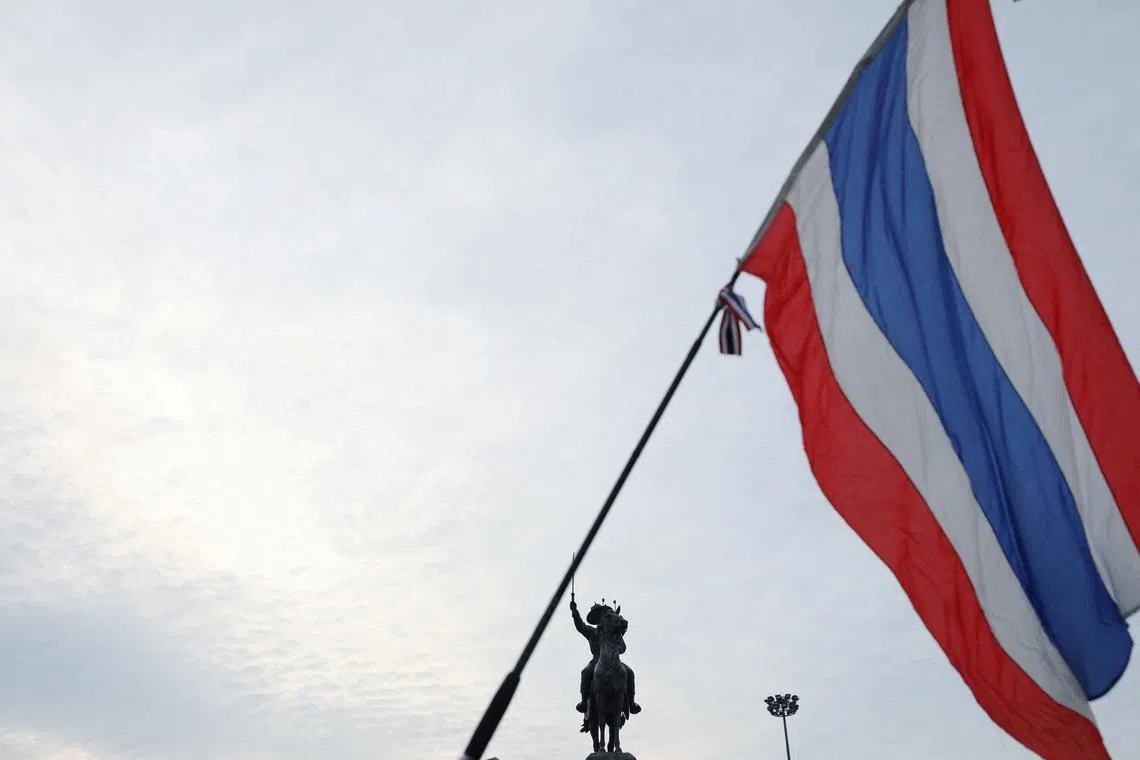US says it is alarmed by American academic’s arrest in Thailand
Sign up now: Get ST's newsletters delivered to your inbox

Paul Chambers' arrest is a rare prosecution of a foreigner under Thailand's strict lese majeste laws.
PHOTO: REUTERS
Follow topic:
WASHINGTON - The US State Department said on April 8 that it was alarmed by the arrest in Thailand of American academic and US citizen Paul Chambers, who was charged with insulting the monarchy
Local police said Chambers, a lecturer at Thailand’s Naresuan University, reported to a precinct in the northern province of Phitsanulok after a warrant for his arrest was issued last week following a complaint filed by the army.
Thailand’s monarchy is protected by Section 112 of the country’s penal code, which says anyone found guilty of defaming, insulting or threatening the king, queen, heir apparent or regent shall be punished with imprisonment of three to 15 years.
Chambers was also charged with a computer crime violation.
“As a treaty ally of Thailand, we will closely monitor this issue and advocate for the fair treatment of Paul Chambers,” the State Department said in a statement.
“This case reinforces our longstanding concerns about the use of lese majeste laws in Thailand. We continue to urge Thai authorities to respect freedom of expression and to ensure that laws are not used to stifle permitted expression,” it added.
Thai royalists consider the monarchy sacrosanct. Public discussion of the law has for decades been a taboo issue, with dozens of people jailed for perceived insults of the crown.
A lawyer for Chambers denied the charges and said the accusations stemmed from a blurb for an online academic seminar in 2024 at which he was a speaker.
According to various reports, including British media outlet The Guardian, the charges Chambers face relate to a webinar invitation titled “Thailand’s 2024 Military and Police Reshuffles: What Do They Mean?”. It was published in October 2024 on the website of Singapore-based ISEAS – Yusof Ishak Institute.
In a media reply, a spokesperson for the institute said it is concerned about the arrest of Chambers, who is a very established academic and a visiting fellow under its Thailand Studies programme since 2021.
“As a research centre dedicated to the objective analysis of South-east Asia, ISEAS values Dr Chambers’ contributions. Since his case is now before the courts, ISEAS will refrain from making further comments for now,” the spokesperson said.
The Foreign Correspondents’ Club of Thailand said in a statement on April 9 that it is “deeply concerned about the detention and denial of bail” of Chambers pending trial.
The group also urged the authorities to ensure the academic receives “just treatment as promptly as possible”.
It noted that Chambers is a well-respected academic who has spent more than 30 years in Thailand carving his niche in academia, and that he is married to a Thai, speaks the language and has devoted his career to Thailand.
Calling Chambers soft-spoken, empathetic and enthusiastic, the club said the academic is “manifestly a very low-flight risk and is not guilty of any previous crimes”. REUTERS
Additional reporting by Fatimah Mujibah

